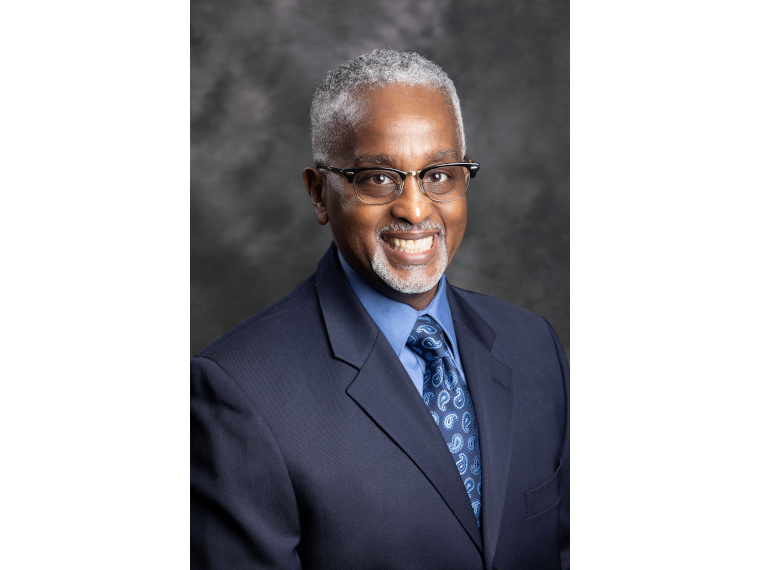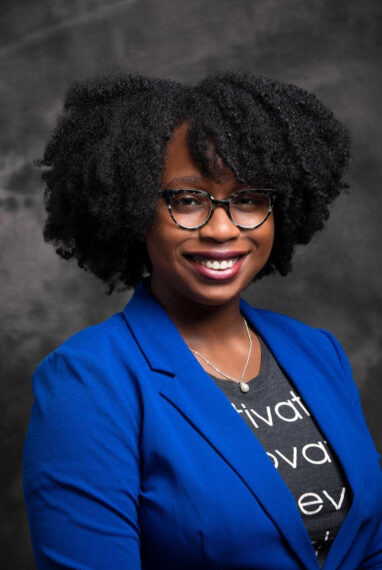Featured photo: Mama Sol, of Flint, who advocates for mental health for the BIPOC community
Written by Tanya Terry
A mountain can’t be climbed without them bumps, true
You just keep sliding right back down if life was all smooth
So tip toe that tight rope
Keep balance baby, you beamin’
Your head up, and your chest poked and you’ll be who you believe in
Keep dreamin’
Keep workin’
Keep livin’
Keep lovin’
It’s coming
I can feel it in my stomach
If it doesn’t, it’s a reason
Maybe it just ain’t yo’ season
Keep pushin’
Keep cookin’
Let it simmer
Don’t be quitin’ on me
‘cause every winner took a loss
But every loser ain’t a winner
It’s a cost that’s goin’ come with it
Stay committed to your gift
You ain’t go’ get it if you don’t give
Grime, sweat and tears
‘Til it’s your time to shine
-By Mama Sol
Anytime you’re dealing with mental health, you have to stay as much on the spectrum of positivity as you can, according to national hip-hop and spoken word artist, Mama Sol, of Flint.
“Sometimes we have to get out of our own way mentally, in the head,” Sol added. “Our body is going to follow the mind. So, if your mind is not healthy, a lot of times the body will follow that. Diabetes, cancer, high blood pressure and all these different things can come from just a mental thing.”
Sol focused on making people feel better about themselves and their circumstances at an event held this summer centered around the mental health of the Black, Indigenous and People of Color (BIPOC) population. At the event, “Black Nights, Brown Hope,” Sol provided a unique storytelling experience before the evening concluded with a question-and-answer session with mental health professionals from Flint.
“I just focused on keeping people motivated to move forward…,” said Sol. “Regardless of what it is, things are in a very divine order. Things don’t just happen. They happen just. It’s not happening to you. It’s happening for you.”
Sol pointed out a mountain can’t be climbed without bumps.
“You have to step up on those bumps and throw yourself up.”
Dexter Clarke was one of three panelists at “Black Nights, Brown Hope.” Clarke is director of faith-based and community engagement initiatives for Genesee Health System (GHS) GHS is a not for profit mental health authority providing services to Genesee County, MI.
“One of the things I expressed and tried to get people to understand is that mental health is just as important as physical health, and especially for people of color,” Clarke said. “We are dealing with a lot of challenges. We deal with inequity in healthcare, in medical care and just social injustice. So, we have to find that balance. Many times as people of color we have not addressed that. We kind of push that down and say ‘I got to man up, or I got to be strong enough because nobody is going to help me get through this.’”

Clarke has observed that BIPOC communities don’t like to address the need for mental health assistance because of the stigma that it’s a sign of weakness. Clarke says the first step in addressing these needs is just admitting that there is something going on or that you are feeling depressed, for example.
“We all are human, and we all go through emotional things,” Clarke stated.
He said the first step is admitting one needs help and then connecting to and seeking treatment, which may include medication or simply counseling.
Flint and Genesee REACH Project Coordinator Amarachi Wachuku says the Greater Flint Health Coalition’s hope has been to provide resources beyond at the “Black Nights, Brown Hope” event in order to see long-term change. Flint and Genesee REACH is a program of the coalition.

According to Wachuku, reasons BIPOC community members may not receive mental health care could be insurance rates, underinsurance or lack of insurance. So, where to access mental health resources was shared.
Wachuku said at ”Black Nights, Brown Hope,” held at the Black-owned and operated McCree Theatre towards the end of July, the importance of being true to yourself was highlighted.
Wachuku also pointed out the importance of knowing there are people who really, truly care. These people not only have expertise, but also understand what it means to go through a mental health challenge as BIPOC individuals.
A program called Flint ReCAST (Resiliency in Communities After Stress and Trauma) focuses on healing generational trauma in the Flint community. For more information on Flint ReCAST, visit www.flintrecast.org.
For more information on the Greater Flint Health Coalition, visit www.gfhc.org.
To reach Genesee Health System (GHS), call (810) 257-3705. For the Crisis Line, call 810-257-3740.


